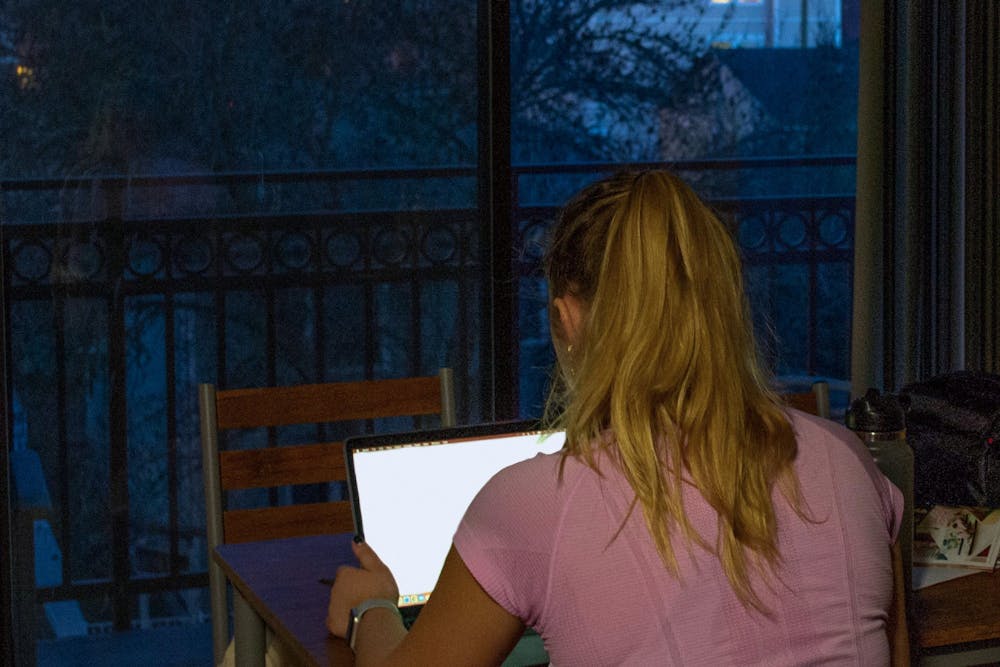Seasonal depression in the winter months is something some college students dread going through every year — when the sky gets darker earlier and the temperatures drop.
Seasonal depression is associated with a change in seasons. It often occurs at specific times of the year for many people, such as beginning in the fall and continuing during the winter months, according to Mayo Clinic.
Certain actions during winter months can affect symptoms of depression, though there is often controversy around if seasonal depression is a real thing or not, Dr. Kelly Lynn Wierenga, assistant professor at IU-Purdue University Indianapolis’s School of Nursing, said.
Not exercising as frequently, using alcohol and tobacco and eating more unhealthy foods at social gatherings are factors contributing to an increase in depression symptoms, Wierenga said.
“Whether or not we label symptoms of depression in the winter as seasonal depression, it is worth addressing symptoms regardless of the month,” Wierenga said.
Those experiencing symptoms of depression in the winter months should talk to their health care provider, Wierenga said. They can also try to decrease the frequency and quantity of alcohol and tobacco use, maintain a healthy diet and sleep schedule and exercise regularly, she said.
IU sophomore Addie Diseroad Watts said she has experienced seasonal depression and has heard her peers at IU talk about it too.
Watts said she first started having trouble sleeping and concentrating in the winter months of middle school. Over time, it progressively got worse and she did not know what she was suffering from.
“I didn’t know what was wrong with me,” Watts said. ”It actually wasn’t until last year that I realized what was happening.”
Watts said she eventually learned about seasonal depression by coming across posts online and on TikTok talking about it. She said she has learned specific strategies that have helped her cope, like taking vitamin D supplements, creating a regular exercise routine and trying to get at least 15 minutes of sunlight a day. She also recommends increasing the amount of light in your home like by putting up fairy lights or lighting candles.
IU freshman Hannah Madura said she has also experienced seasonal depression and knows many family members and friends who do too. She said she can sense she isn’t herself when she is suffering from it, and it is difficult for her to leave her room sometimes.
“As someone who is usually very upbeat, I can feel a difference in myself,” Madura said. “My roommate has noticed that I just never want to leave as well.”
Madura said people should remind themselves the depression will pass.
“Just try telling yourself it’s not you, it’s the weather and the lack of sunlight,” Madura said.
IU freshman Kylie Fulton said she feels especially affected by seasonal depression under the typical winter weather due to cold temperatures and lack of sunlight.
“I get way less motivated to finish out my school semester and beginning the next one is always rocky,” Fulton said. “Overcast weather just has never been anything but upsetting to me.”
Fulton said she tries to surround herself with people and things that she is passionate about to give her things to look forward to.
If you or someone you know is suffering from depression and needs help, you can call the Counseling and Psychological Services at (812) 855-5711 or call the 24/7 available crisis line at (812) 855-5711.




